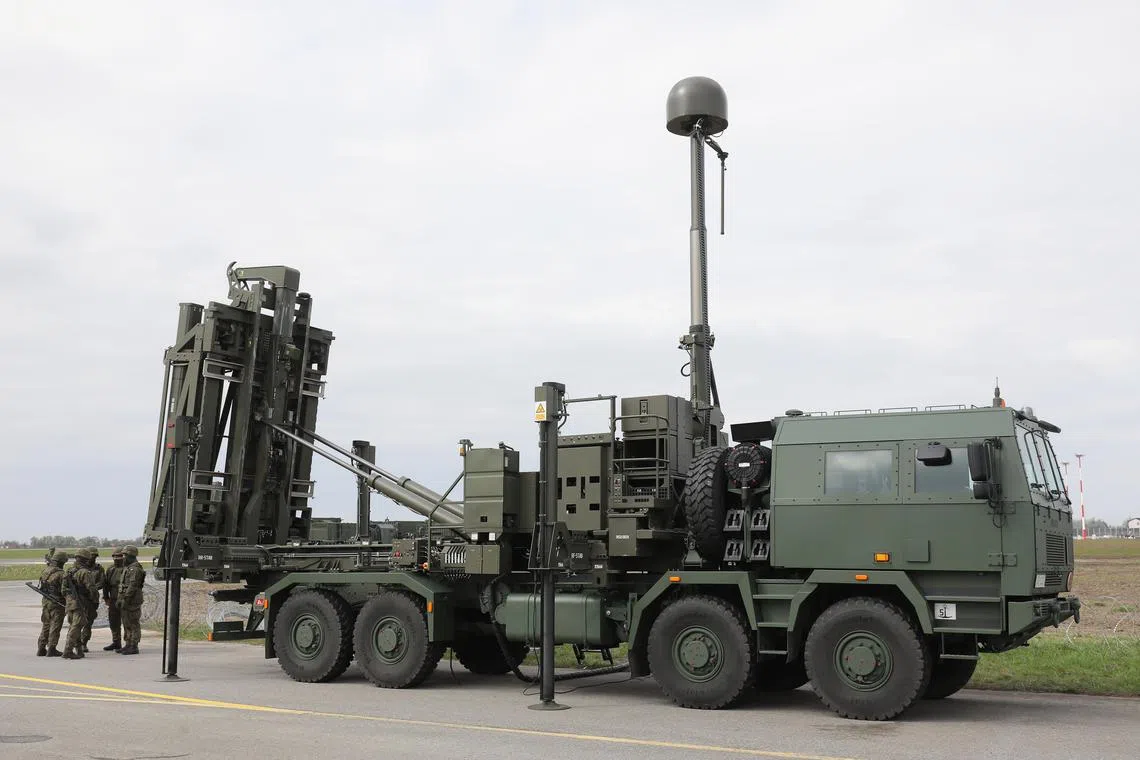Poland announces $3.2b air defence deal with Europe’s MBDA
Sign up now: Get ST's newsletters delivered to your inbox

Poland spent the equivalent of 2.4 per cent of its GDP for the military in 2022, the third-highest among Nato countries.
PHOTO: EPA-EFE
Follow topic:
WARSAW - Poland’s armament agency on Friday announced it had signed a £1.9 billion (S$3.2 billion) air defence deal with the UK arm of Europe’s MBDA, which will provide missiles and missile launchers.
The government agency said the deal concerns “the supply of 44 iLaunchers and several hundred CAMM missiles as well as accompanying equipment”.
“The value of the order is around £1.9 billion... Deliveries of the military equipment will take place in 2025-2029,” it added.
Missile maker MBDA also announced the deal, calling it “the largest European short-range air defence acquisition programme in Nato”.
The missiles and missile launchers will go “to support Poland’s modernisation and manufacture of a total of 22 PILICA+ air defence batteries”, it added.
A Downing Street press release said British Prime Minister Rishi Sunak hailed the “landmark deal... as major boost for Euro-Atlantic security”.
It added that Poland already uses MBDA’s CAMM.
“It is already deployed to Poland with the British Army to protect its airspace following (Russian President Vladimir) Putin’s barbaric invasion of Ukraine” last year, Mr Sunak’s office said.
Polish Defence Minister Mariusz Blaszczak tweeted that the deal would “reinforce Poland’s aerial defence capacity”.
The EU member had spent the equivalent of 2.4 per cent of its gross domestic product for the military in 2022,
This year, Poland’s military spending is due to reach three per cent of GDP.
The country has recently signed a batch of deals to boost its defence capabilities, including with the United States and South Korea. AFP

